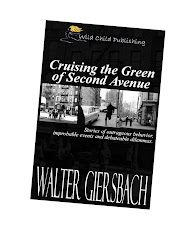I
was probably in the fourth grade when our wacky teacher (the one who regaled us
with stories of his epic drinking in the Navy) asked the class to write a short
piece about “The Best State in America.”
Everybody but one chose Oregon; one student wrote about California. I was ostracized for a week.
Thing
was, our family traveled every summer in the 1940s, driving throughout the
Northwest or cross country in our ’39 Buick.
None of the my classmates had ever been farther than Idaho or
Washington.
We
eagerly anticipated summer vacation as the family plotted a route to Glacier
National Park (where we had a snowball fight on the Fourth of July), or the
Grand Canyon (where my kid brother and I skipped along the wall a mile above
the canyon floor), and because Dad was in love with the American Way of Life we
hit every state capitol on the way.
We
didn’t have money for motels, but camping in parks was virtually free. My folks had invested in Army surplus wooden
cots (cost: one dollar), down-filled mummy sleeping bags (at 75 cents each) and
a tarpaulin that once covered a deuce-and-a-half truck. We’d tie a clothesline between two trees, my
big brother would throw the tarp over the top and peg it down with more
rope. There was no privacy, but we’d
look the other way when Mom and our grandma would change into pajamas.
This
was life at its best. In Yellowstone, we
scrambled into the Buick when a mama bear and two cubs tore into a neighboring
campsite and emptied a carelessly-left ice chest of its meat and fruit. In another park, we heard a scream at
midnight when Mom and Grandma found a porcupine occupying the outhouse they
wanted to use. At an empty ranger’s
cabin in Colorado, someone had left a magnificent collection of soda bottle
caps that I desperately wanted to have but dared not steal. The downside to that overnight occupation was
the porcupine chewing at the cabin logs, keeping us awake all night long.
These
real-life adventures meshed perfectly with the Holling Clancy Holling books we
read. Paddle-to-the-Sea, Tree in
the Trail and Minn of the Mississippi. Holling was a Michigan boy who, in the ‘20s, became
a writer, artist and naturalist. He
canoed and camped, found edible foods in the wild and devised a breathing tube
so he could lie under the Mississippi to record turtle activities.
Sadly,
today the glaciers are melting, there are traffic jams at the Grand Canyon, and
no one seems to camp without microwave ovens and portable TVs. The bears in Yellowstone have even been
herded off for fear the tourists will get mauled.
Memories
of this earlier time prompted me to create a Web site (http://hollingcholling.blogspot.com/)
to memorialize Holling and his wife. I
love sharing the anecdotes about the couple paying for their vacations in Texas
by painting murals in a resort, about showing a Chamber of Commerce group how
to make a fire using two dry sticks, and even teaching some Native Americans
skills they’d forgotten. I’m especially
gratified when strangers e-mail me saying they believe they found a small
picture Holling painted or the Army jacket he once wore or hand-forged knives
given to Holling. My mentor is a woman
in her 70s in Leslie, Michigan, who curates a museum devoted to Holling, his
writing and his art. And the Holling
artifacts that the Web site uncovers often end up in that museum.
Thinking
back to my fourth grade assignment now, I’d have to say there are 50 best
states.



No comments:
Post a Comment